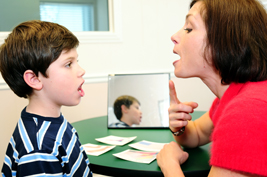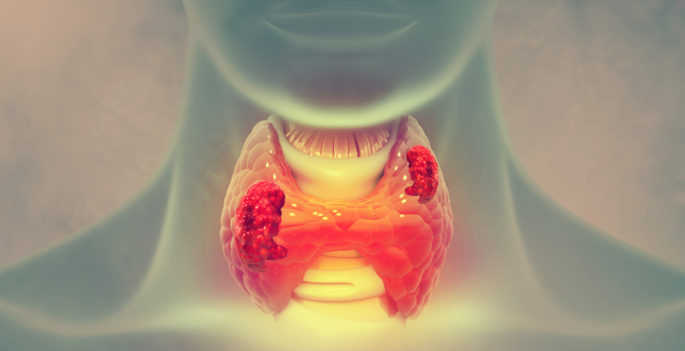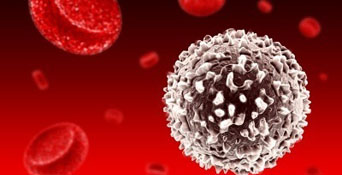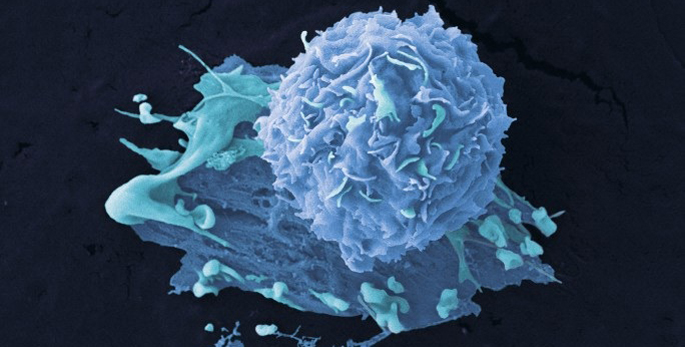Research
-

International study supports dupilumab for treatment of moderate-to-severe asthma in children
In a late-stage clinical trial, the biologic agent dupilumab reduced the rate of severe asthma attacks and improved lung function and asthma control for children ages 6 to 11 with moderate-to-severe asthma, offering a new option to these patients. Read MoreDec 8, 2021
-

Gene discoveries give new hope to people who stutter
New research shows the potential to identify therapeutic directions that could improve outcomes for people who stutter. Read MoreDec 2, 2021
-

Vanderbilt researcher outlines how whales’ sensory systems have evolved through imaging technology
In a review of 100 years of research on the sensory systems in whales, Rachel Racicot, research assistant professor of biological sciences, describes advances in the field and key questions that remain. Read MoreDec 2, 2021
-

Thyroid cancer paper lands national recognition
Researchers in the Endocrine Neoplasia Research Laboratory at Vanderbilt University Medical Center have received national recognition for their work to discover better treatments for thyroid cancer. A paper describing their lab work was awarded first place in the Basic Science category at the 2021 Cancer Research Competition. Read MoreDec 2, 2021
-

Study links depression scores, white blood cell count
Researchers across four health care systems, including Vanderbilt University Medical Center, have found that increased depression polygenic scores are associated with increased white blood cell count, highlighting the importance of the immune system in the etiology of depression. Read MoreDec 2, 2021
-

Vanderbilt engineer leads DARPA project to enable AI machines to gain, share knowledge
Kolouri wins $1M DARPA grant to investigate AI cooperative lifelong learning A Vanderbilt engineering professor is leading part of an international initiative to create advanced artificial intelligence programs that will enable machines to learn progressively over a lifetime and share those experiences with each other. Researchers hope the technology will allow machines to reuse information,... Read MoreDec 2, 2021
-

Study provides new insight into how antidepressant drugs work
A study by Vanderbilt researchers sheds light on how current antidepressant drugs work and suggests a new drug target in depression. Read MoreDec 1, 2021
-

Vanderbilt engineers’ Science paper reviews scope of atomically thin membranes for subatomic separations
A paper by Vanderbilt engineers that explores the scope to scale up the sizes of atomically thin membranes and their potential use in applications relating to energy, microscopy, and electronics is published in the journal Science. Authors Piran R. Kidambi, assistant professor of chemical and biomolecular engineering, Pavan Chaturvedi, postdoctoral scholar in the Department of... Read MoreDec 1, 2021
-

New study reveals breakthrough tool to show how much exoskeletons reduce back injury risk
A study led by researchers from Vanderbilt University’s Center for Rehabilitation Engineering and Assistive Technology reveals a breakthrough tool to assess the effect of exoskeletons on injury risk. The tool, called Exo-LiFFT, is an interactive calculator that will help companies looking for ways to overcome workforces struggling with musculoskeletal injuries, missed work, and accelerated retirement... Read MoreNov 30, 2021
-

‘Multi-omics’ reveals treatment option for breast cancer subtype
by Bill Snyder In a multidisciplinary collaboration, researchers at Vanderbilt University Medical Center and the University of Miami Miller School of Medicine have identified a subtype of triple-negative breast cancer (TNBC) that appears to be able to escape detection by the immune system and evade immunotherapy. Their report, published Nov. 1 in the journal... Read MoreNov 18, 2021
-

Headband device suitable for use at home with young ADHD patients
Vanderbilt biomedical engineering professor has developed a prototype headband to measure brain activity that could have widespread application in studying and ultimately treating ADHD and other neurological disorders. The device is lightweight, portable, and inexpensive to construct. Prototype components cost less than $250, compared to costs exceeding $10,000 for commercial systems. Audrey Bowden, associate professor... Read MoreNov 16, 2021
-

Headband device suitable for use at home with young ADHD patients
Vanderbilt biomedical engineering professor has developed a prototype headband to measure brain activity that could have widespread application in studying and ultimately treating ADHD and other neurological disorders. The device is lightweight, portable, and inexpensive to construct. Prototype components cost less than $250, compared to costs exceeding $10,000 for commercial systems. Audrey Bowden, associate professor... Read MoreNov 16, 2021
-

AI predicts 24-hour hospital discharge
Vanderbilt researchers used a machine learning algorithm and data from more than 26,000 hospital stays to predict who would and would not be discharged over the next 24 hours. Read MoreNov 16, 2021
-

Vanderbilt to lead $5 million Air Force center of excellence in radiation effects research on electronics
Center aims to advance the understanding of physical mechanisms responsible for radiation-induced effects on emerging technologies The Institute for Space and Defense Electronics at Vanderbilt University has been selected as the Center of Excellence in Radiation Effects by the U.S. Air Force Office of Scientific Research and the Air Force Research Lab. The $5 million, five-year program will be... Read MoreOct 29, 2021
-

Vanderbilt to lead $5 million Air Force center of excellence in radiation effects research on electronics
Center aims to advance the understanding of physical mechanisms responsible for radiation-induced effects on emerging technologies The Institute for Space and Defense Electronics at Vanderbilt University has been selected as the Center of Excellence in Radiation Effects by the U.S. Air Force Office of Scientific Research and the Air Force Research Lab. The $5 million, five-year program will be... Read MoreOct 29, 2021
-

Researchers to test wearable tech to detect problem behaviors in children with disabilities and offer intervention strategies
Vanderbilt researchers have won a National Science Foundation grant to use wearable technologies to detect problem behaviors in children and adolescents with intellectual and developmental disabilities and offer strategies to protect them from potential harm. Children with intellectual and developmental disabilities (IDD) are at increased risk of showing problem behavior that expose them to being... Read MoreOct 27, 2021
-

Researchers to test wearable tech to detect problem behaviors in children with disabilities and offer intervention strategies
Vanderbilt researchers have won a National Science Foundation grant to use wearable technologies to detect problem behaviors in children and adolescents with intellectual and developmental disabilities and offer strategies to protect them from potential harm. Children with intellectual and developmental disabilities (IDD) are at increased risk of showing problem behavior that expose them to being... Read MoreOct 27, 2021
-

Novel advanced light design and fabrication process could revolutionize sensing technologies
Vanderbilt and Penn State engineers have developed a novel approach to design and fabricate thin-film infrared light sources with near-arbitrary spectral output driven by heat, along with a machine learning methodology called inverse design that reduced the optimization time for these devices from weeks or months on a multi-core computer to a few minutes on... Read MoreOct 21, 2021
-

New drug targets vascular inflammation, drastically improves vascular procedures’ long-term effectiveness
By Aran Sullivan THE IDEA Cardiovascular procedures like bypass grafting and vessel stenting are some of the most common surgeries performed in the United States, but about half of them will require additional corrective measures, according to Craig Duvall, Cornelius Vanderbilt Chair and undergraduate director of biomedical engineering. The need for follow-up procedures is often... Read MoreOct 12, 2021
-

Chang receives $1.1 million grant to investigate brain-body connections, advance understanding of how brains age
An assistant professor of electrical and computer engineering has received a $1.1 million NIH grant to investigate brain-body connections and advance understanding of aging in normal and pathological brains. Catie Chang, assistant professor of electrical and computer engineering, leads the research team, which will focus on developing machine learning methods that can automatically reconstruct physiological... Read MoreOct 11, 2021